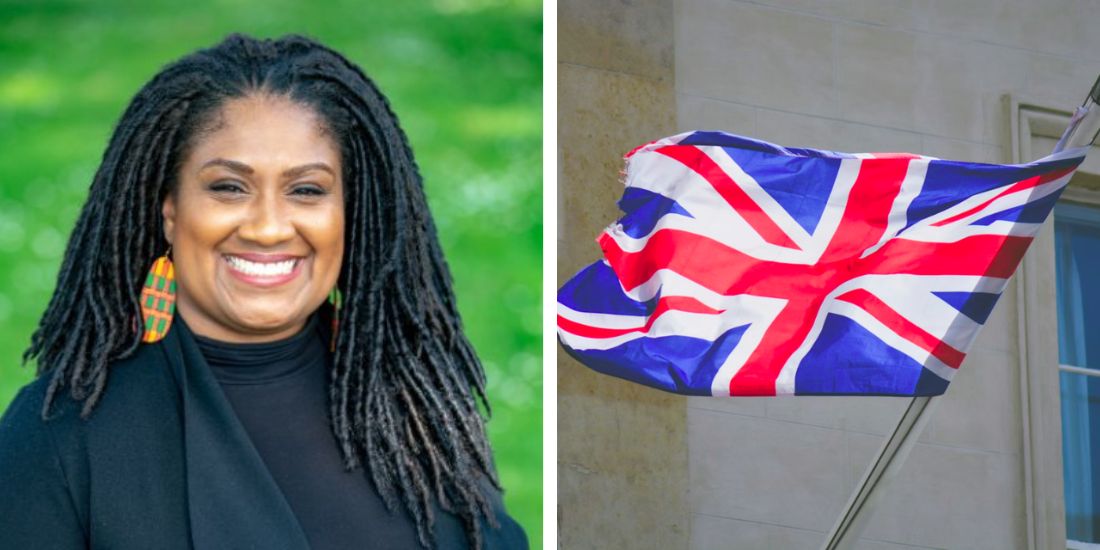Whenever they oppose age verification laws, Big Tech pretends that they genuinely care about your privacy. When they sue states that pass these age verification laws, however, they then claim that the First Amendment gives them the right to collect your kids’ personal information.
Last year, Utah passed its own social media law. Utah’s law requires minors to obtain parental consent before they can create an account on social media—which in turn requires all users to verify their age. In addition to that, Utah’s law also includes commonsense requirements that bans social media companies from collecting and using kids’ personal information, and also bans advertisements for kids.
(It’s worth noting that even if the courts struck down age verification, there would still be some circumstances where social media companies would know that a user is a minor; the ban on collecting kids’ personal information would still apply in those circumstances.)
After Utah enacted its social media law, NetChoice—the trade association for the Big Tech companies—issued a press release in March 2023 titled, “NetChoice Disappointed to See Unconstitutional Utah Bills Endangering Online Privacy Signed Into Law,” claiming that the law “will force businesses to collect more — not less — of people’s sensitive personal data, including teens.”
On the one hand, Big Tech claims in the antitrust world that monopolies are never a problem; due to the extremely rapid pace of technical innovation, today’s monopolies will become obsolete tomorrow. On the other hand, Big Tech claims that that the technology for age verification has not meaningfully advanced in decades; they frequently cite a Supreme Court case from 1997, Reno v. ACLU, when they claim that age verification is unconstitutional.
As an ex-Google engineer who built a proof-of-concept for privacy-conscious age verification, I can tell you that NetChoice is greatly exaggerating the privacy concerns here. In the past, Big Tech would deploy their engineers to solve problems like this. Today, they deploy their lobbyists to tell policymakers that these problems cannot be solved.
But even if we accept NetChoice’s argument at face value—that age verification is a major threat to privacy—it still does not follow that Big Tech is motivated by a genuine concern for privacy. Once again, we will find that their left hand tells policymakers one thing, while their right hand does the opposite.
Now if you were an independent privacy advocate who coincidentally sided with NetChoice on the issue of age verification, you would still support the parts of Utah’s law that banned the collection and use of kids’ personal information, and you would likely support the ban on advertising for kids.
When NetChoice sued Utah in December, though, they took a very different approach. In addition to challenging the constitutionality of age verification, they also argued that they have a First Amendment right to collect your kids’ personal information (Count VIII of the lawsuit). In addition to that, they argued that the ban on advertising for kids also violated the First Amendment (Count IV of the lawsuit).
On the one hand, NetChoice claimed in March 2023 that Utah’s law “will force businesses to collect more — not less — of people’s sensitive personal data, including teens” (emphasis added). On the other hand, in December 2023, they claimed in a lawsuit that they have a constitutional right to collect more data from those same teens.
Somehow, I do not think that the Big Tech company genuinely cares about the privacy of your kids.
In the past, I have joked that whenever Big Tech—and certain libertarian DC think tank staffers—see a tech bill they dislike, they will reflexively claim that said bill violates the First Amendment. (Spoiler alert: not every “bad” bill violates the First Amendment.) That joke takes on a life of its own, however, when Big Tech claims that they have a First Amendment right to violate your kids’ privacy.
Last year, Utah passed its own social media law. Utah’s law requires minors to obtain parental consent before they can create an account on social media—which in turn requires all users to verify their age. In addition to that, Utah’s law also includes commonsense requirements that bans social media companies from collecting and using kids’ personal information, and also bans advertisements for kids.
(It’s worth noting that even if the courts struck down age verification, there would still be some circumstances where social media companies would know that a user is a minor; the ban on collecting kids’ personal information would still apply in those circumstances.)
After Utah enacted its social media law, NetChoice—the trade association for the Big Tech companies—issued a press release in March 2023 titled, “NetChoice Disappointed to See Unconstitutional Utah Bills Endangering Online Privacy Signed Into Law,” claiming that the law “will force businesses to collect more — not less — of people’s sensitive personal data, including teens.”
On the one hand, Big Tech claims in the antitrust world that monopolies are never a problem; due to the extremely rapid pace of technical innovation, today’s monopolies will become obsolete tomorrow. On the other hand, Big Tech claims that that the technology for age verification has not meaningfully advanced in decades; they frequently cite a Supreme Court case from 1997, Reno v. ACLU, when they claim that age verification is unconstitutional.
As an ex-Google engineer who built a proof-of-concept for privacy-conscious age verification, I can tell you that NetChoice is greatly exaggerating the privacy concerns here. In the past, Big Tech would deploy their engineers to solve problems like this. Today, they deploy their lobbyists to tell policymakers that these problems cannot be solved.
But even if we accept NetChoice’s argument at face value—that age verification is a major threat to privacy—it still does not follow that Big Tech is motivated by a genuine concern for privacy. Once again, we will find that their left hand tells policymakers one thing, while their right hand does the opposite.
Now if you were an independent privacy advocate who coincidentally sided with NetChoice on the issue of age verification, you would still support the parts of Utah’s law that banned the collection and use of kids’ personal information, and you would likely support the ban on advertising for kids.
When NetChoice sued Utah in December, though, they took a very different approach. In addition to challenging the constitutionality of age verification, they also argued that they have a First Amendment right to collect your kids’ personal information (Count VIII of the lawsuit). In addition to that, they argued that the ban on advertising for kids also violated the First Amendment (Count IV of the lawsuit).
On the one hand, NetChoice claimed in March 2023 that Utah’s law “will force businesses to collect more — not less — of people’s sensitive personal data, including teens” (emphasis added). On the other hand, in December 2023, they claimed in a lawsuit that they have a constitutional right to collect more data from those same teens.
Somehow, I do not think that the Big Tech company genuinely cares about the privacy of your kids.
In the past, I have joked that whenever Big Tech—and certain libertarian DC think tank staffers—see a tech bill they dislike, they will reflexively claim that said bill violates the First Amendment. (Spoiler alert: not every “bad” bill violates the First Amendment.) That joke takes on a life of its own, however, when Big Tech claims that they have a First Amendment right to violate your kids’ privacy.





